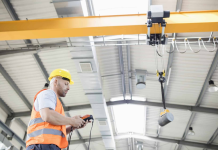It is easy to overlook the mechanical aspects of freight car wheels that need regular maintenance. Damaged wheels, missing wheel fasteners, and failures of some axle and suspension parts are some of the problems associated with noise and wear on freight car wheels. Vehicle speed, road conditions, driveline, and suspension parts all contribute to the wear, and it is crucial to monitor them closely. Here are some tips for reducing noise and wear on freight car wheels.
Ensure the wheel and tire assembly are in balance
As a freight car moves, the tire is in contact with the road surface. The wear surface fluctuates according to the road surface if the engine is in good condition and the tire and wheel assembly balance. But if the wheel and tire assembly are out of balance, the wheels are exposed to additional stress resulting in more wear over a short period.
Therefore start by ensuring that the wheels and tires are in good balance. Avoid jumping to the conclusion that a simple balancing can address the issue. Have an expert conduct an inspection to check for bent or broken brake rotors that may be causing vibrations or unusual noises on the wheel ends. You should also ensure that the wheel hub assembly bearings are not causing excessive wheel parts movements.
Inspect for Brake related problems
Grabbing brakes is another cause of wear spots and noise on freight car wheels, and some reasons include oil on the brake lining or variable adjustment. If that’s the issue, you may need to replace some brake parts with high-quality ones from reputable companies like Kor Pak. You should also consult the right freight car wheel specialists for brake adjustment procedures and replacement specifications.
Regularly inspect the wheel alignment.
Worn out or damaged suspension and poor wheel alignment can lead to vibrations and wheel wear down quickly. It is advisable to routinely inspect your freight car wheel alignment to ensure optimal driveability and ensure your wheels last longer. If you notice vibrations in the seat or feel like the steering wheel seems out of balance, your freight car may be due for wheel alignment. You should visit a specialist to ensure a comprehensive inspection to address any other problems with your wheels.
Don’t overlook the fasteners.
Many people try to obtain maximum clamping force by applying more than the required torque, not realizing the damage it can cause. If you subject a wheel to excessive torque, you could stretch the stud past its yield point. Note that tighter is not ideal, especially when reusing nuts and studs. Ensure your wheels are checked for correct torque after wheel installation to avoid potential problems with fasteners.
The takeaway
When working with anything mechanical, it is vital to pay close attention to its day-to-day operation, including noise and wear, to pinpoint problems and address them before they worsen. Whether a part wears down quickly or has a longer lifespan, periodic maintenance ensures its maximum performance and safety.






